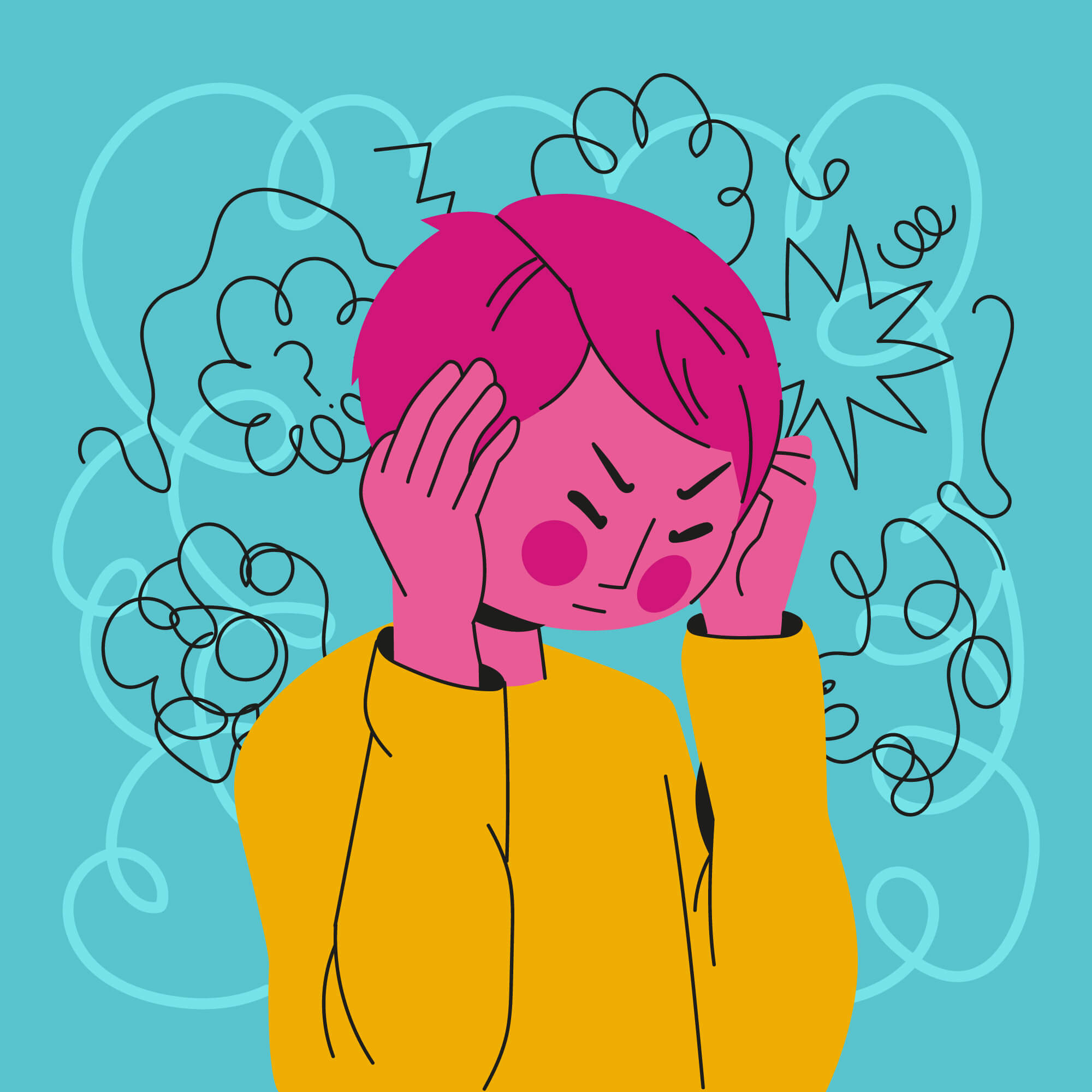My goal for my children is that they receive the support they need in order to learn, grow, and thrive—exactly as they are, in defiance of ableism that measures their worth by compliance or cure. I want them to access education in ways that are safe, joyful, and meaningful.
I want them to follow their fascinations, feel pride in their skills, and take on challenges that interest them, without being trained to mask distress or perform helplessness to unlock care.
And I want them to have support in the regular, ordinary, daily in-between moments that make learning possible, not only when they are failing, melting down, or erupting in hallways, because ableism thrives on delayed recognition and crisis response.
I do not require them to become fluent at what challenges them all at once; I reject the ableist demand that progress be measured by how independently a child can endure. I am raising them to be whole, not palatable, and to know their wholeness is never conditional.
What the school want
The school’s ethos diverges sharply from mine—it centres on ending support, on pushing children toward quiet assimilation, on crafting a trajectory where their needs recede from view, and where once their distress becomes less visible, the help that enabled that stability is swiftly withdrawn.
It treats support as a temporary tool to extinguish symptoms rather than a sustained act of scaffolding, and it defines progress as the absence of crisis, regardless of what was swallowed to maintain the calm.
By contrast, I see support not as a precondition for thriving, a steady framework that enables growth, connection, and regulation before the damage begins—not after the explosion.
Where the system sees co-regulation as dependency to be corrected, I see a practice of care, of solidarity, of teaching interdependence in a world that demands isolation as proof of maturity.
So when I say plainly that my child may always need help with self-regulation—that this is a neurological difference, not a delay—their faces shift; I see the flash of disapproval, the quiet horror.
When I say my daughter deserves support even when she excels, they act as if I’ve committed her to helplessness. And when I refuse to join the narrative of swift recovery and short-term plans, I become the problem: the parent who clings, the mother who pathologises, the woman who asks for too much.
But I am still not good at timesheets, and I am a brilliant solution architect. I deserve scaffolding in the areas where I flood. My worth is not determined by the tasks I cannot do alone. And neither is theirs.
They are trying to build a staircase to normal. I am trying to build a life raft, so my children can survive.
-
The right amount of agony in BC schools
After watching my children endure eight years of institutional failure, eight years of exclusion disguised as discipline and support withheld under the language of inclusion, I have…
The unbearable mismatch
And what becomes unbearable, over time—what rubs raw the already threadbare edge of my hope—is the way that the system refuses to name this mismatch for what it is, even though it shapes every decision, every plan, every meeting, every refusal, every euphemism that gets handed to me when I ask for something that might actually help.
I am sitting in those rooms, and I am saying, “He learns better when someone helps him take a break before he gets overwhelmed,” and they nod and smile and write something about independence as a goal.
I am sitting in those rooms, and I am saying, “She’s exhausted from school everyday and melting down afterwards,” and they blink and tell me it’s great that she’s developing coping strategies.
I am sitting in those rooms, and I am naming what I see with aching precision—I am saying this is too much, this is hurting her, this is setting him up to fail—and the reaction I receive is not shared concern or thoughtful adjustment, but that slow, quiet, revulsed disbelief, as if I’ve said something indecent, as if I’m trying to trap them in perpetual childhood, as if my refusal to believe in the fantasy of normalcy is a form of betrayal.
The stench of ableism
There is a kind of simmering ableist disgust that rises to the surface whenever I say plainly: my children are disabled. They experience the world in ways that are consistently overwhelming, consistently disregarded, consistently punished, and they will need support—not until they get better, not until they learn the rules, not until they catch up, but likely always.
And there is no tragedy in that, no shame, no failure, no giving up. There is only honesty, and the desire to create something sustainable, something spacious, something that does not demand constant exhaustion as the price of participation.
But when I say it, when I hold the truth of their needs with unflinching clarity, the reaction is swift and sharp and sour. They recoil like I’ve whispered something unspeakable. They look at me like I’m sick. Like I’m trying to keep them small. And I know what that look is. I know what that smell is. It’s the same one they used to throw at mothers in the 1950s when their children failed to recover from polio, or flapped their hands in public, or spoke too late and too strangely and never quite fit in.
-
Maybe tomorrow: reflections on goal post shifting and the economics of access
There were accommodations on paper and endless lip-service meetings. But none of it happened in the classroom. And every time we did what was asked—another intake, another…
The treadmill fighting ableism in BC schools
And what makes it worse—what makes the whole performance unbearable—is that they keep saying strength-based like it’s a spell. They keep saying inclusion like it means something. They keep saying neurodiversity like it’s a badge they get to wear, even as they pull the same tired, damaging IEP goals from last year’s folder and offer them again with a hopeful look, as if I won’t notice that they haven’t changed. Self-regulate. Self-advocate. Use coping strategies independently. These goals are the school’s way of saying:
We will only support you until you stop exhibiting sign of distress.
The school
After that, we expect you to perform wellness for the comfort of others.
And when I say it out loud—when I say that self-regulation may always be hard for him, when I say that independent advocacy remains inaccessible during shutdown, when I say that these are disabilities rather than immature skills—they freeze. They narrow their eyes. They look at me as if I am trying to trap him in diagnosis, as if I want to keep her in diapers, as if I am indulging something dangerous. A peculiar horror enters the room whenever I speak plainly about what I see—as if I have ripped the curtain down, as if I have violated a code.
Because what they want—what they truly want—is for my children to become fluent in the things they hate, the things that flood their nervous systems, the things that make them feel sick or stupid or shameful when they try. They want them to improve at noise, improve at transition, improve at holding still, improve at ignoring their bodies. They want them to build fluency in the very domains that require the most energy to endure. And they call it independence.
But I call it the treadmill. An endless cycle of training children to tolerate the intolerable so that schools can remain unchanged. Because my children are trapped on a treadmill of performing the things they despise, and that does not feel like a path toward thriving. That feels like a system designed to crush the spirit before it can fully form.
The cycle of support, collapse, and blame
When the support is gone—and it is always gone, eventually—my child does his best to hold it together. He tenses his body into stillness, clenches his fists, and holds his breath. He reaches inside for every strategy that was taught to him, and every one he taught himself. And then, when there is nothing left, when the battery is past empty and the scaffolding has rotted out beneath him, he breaks.
Breaking is always humiliating, public, and messy. It is a kind of collapse that leaves him stunned and ashamed—because he did not want to hurt anyone, and now he has; because he did not want to be the one they talk about in staff meetings or on the playground.
I always know it is coming—the spiral, the break, the moment when all my warnings materialise exactly as described—and the unbearable part is that no one acknowledges the accuracy, only resets the cycle as if prediction were coincidence. So he begins again, inside a system that teaches: you can get help, but only after you break down.
-
I only asked for gentleness: on parenting a PDA child in a punishing world
There is a certain kind of child—intuitive, emotionally articulate, wired with a startling perceptiveness about power and tone, about coercion and choice, about the invisible terms of adult authority—whose presence in the classroom becomes, almost immediately, a threat to the institution’s rhythm, a…
What my daughter learned about how to get support
My daughter received classroom support after she punched another child. The next day, she had an EA. The week after that, her needs were suddenly visible.
She turned to me, calm and dry and brilliant, and said,
“Well, I guess if they ever take away my support again,
Just a KID
I can just punch a bitch.”
I laughed—just for a moment—before I could get back into character.
She had read the cues, translated the euphemisms, and watched adults tolerate shutdown, misread masking, and dismiss overwhelm—until she made one unsanctioned move, and suddenly everything changed. She had drawn the only honest conclusion the system offered—a conclusion built not on theory but on pattern recognition, on survival logic, on a nervous system’s meticulous record of who responds, and when.
She had tried everything else first—bathroom passes, whispered warnings, polite withdrawal, folded bodies in too-loud rooms—until she reached the edge of what a child can do when her distress earns no response.
When she acted, the room responded because she had finally created risk, and risk is the only form of need they rush to meet. Support came not when she struggled, but when her struggle disrupted others; not when she asked, but when she became inconvenient; not when she broke down, but when her breakdown became a threat.
Children learn what earns attention—they learn which signals matter, how long they must wait, what forms of suffering are recognised, and which thresholds unlock response.
I want her to learn something else—that asking can be enough, that care can arrive before collapse, that calm does not mean invisible—but she has already learned the real rule: support follows damage.
Impossible to ignore
They are learning that calm invites abandonment and escalation secures response—that distress becomes legible only when it affects others, that support flows toward crisis rather than quiet need, and that the most reliable path to care begins not with asking, but with becoming impossible to ignore.
Also see: She graduated and this is what she learned.
-
Disgusted by my advocacy
I have become hyper-attuned to the particular curl of a staff member’s lip, the slight recoil in their chair, the clenched tone when I insist—again—that my child deserves continued support. These micro-expressions, often passed off as stress or surprise or bureaucratic irritation, are…











